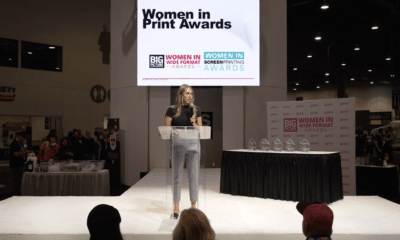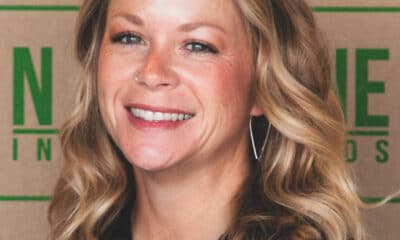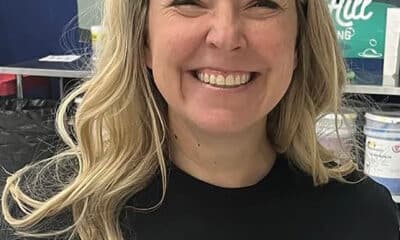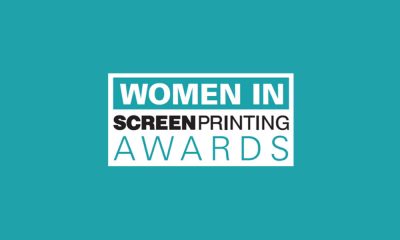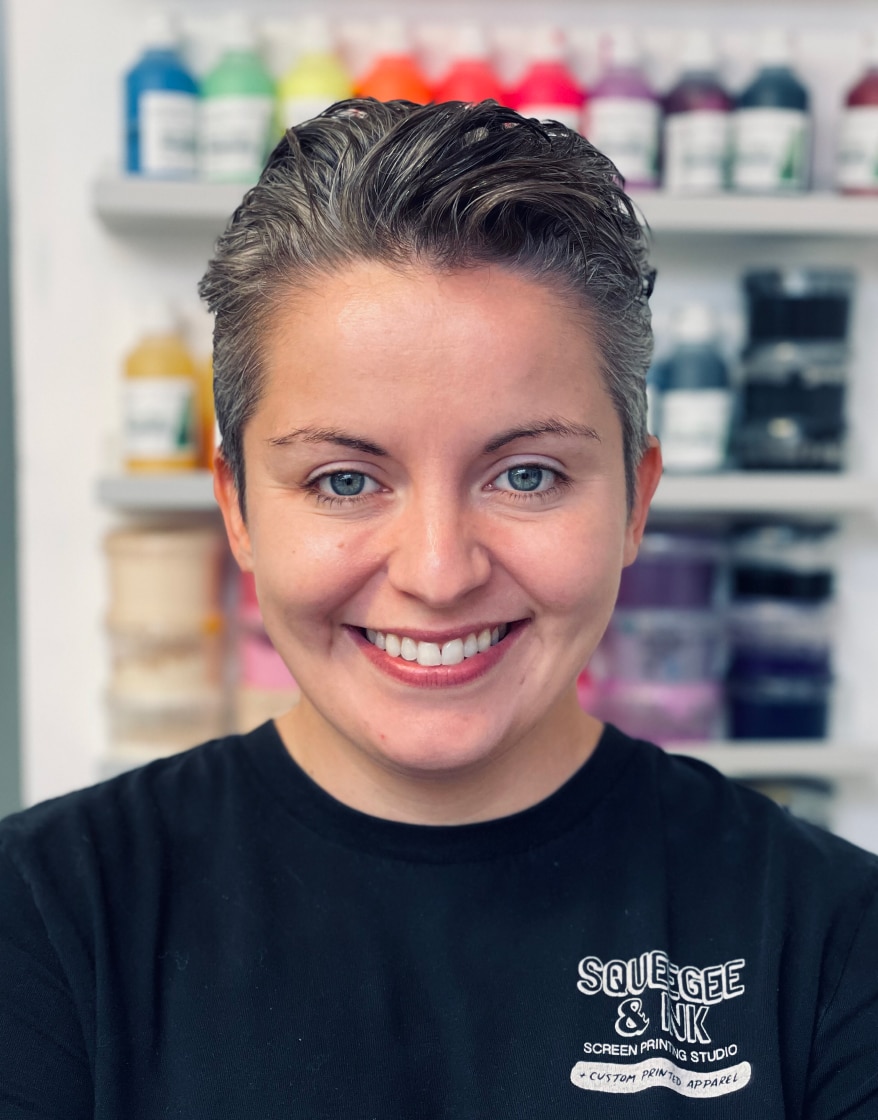
Chessie Rosier-Parker
Director | Squeegee & Ink Ltd., Newbury, Berkshire, United Kingdom
Q: Your nomination highlights the reputation you’ve built as an online educator, stating: “Squeegee and Ink has one of the largest screen-print-oriented Instagrams in the industry, and Chessie has an amazing podcast she puts a lot into. [She is] by far one of the leaders in the U.K. and I would say worldwide!” What drives your passion for teaching other screen printers how to succeed?
Chessie: There is great information about screen printing in technical journals, publications, and essays. The problem is they are no longer viable as a means of educating and communicating effectively. When the shop owners of today seek information they look to video and the opinions of their peers. My work focuses on re-focusing information to be palatable to the younger generation of printers. Even though I have extensive knowledge, my videos tend to focus on the basics of screen printing. I teach the importance of understanding why variables are important and how to diagnose and troubleshoot rather than telling people the answer. I am also very focused on being wrong. If I have the same views and ideas and theories that I had 5 years ago, that would mean I haven’t challenged myself recently. This is rampant in the writings and lessons of the older generation of teachers who haven’t modernized their ideas, as they no longer print themselves and the information drifts into theory. Therefore my passion lies in challenging people and myself in order to give actionable current advice to anyone who asks.
I am really thankful for my nomination from Ryan Moore who was also a recent podcast guest. I think he is a great businessman and an innovator. He is a great example of building things and working on creating assets even if you are not getting immediate gratification.
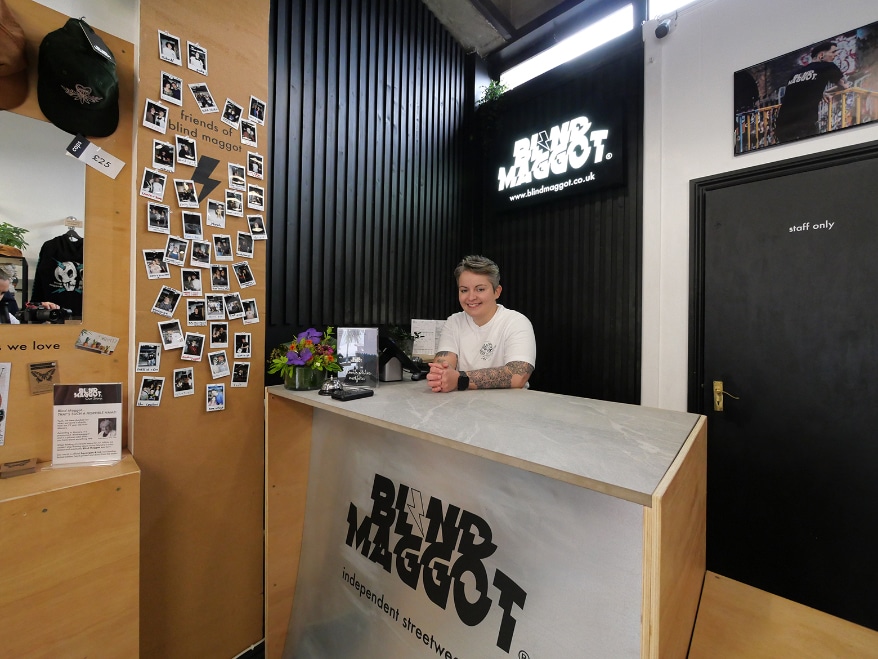
Q: What advice would you give anyone in the industry who is just starting out on their screen printing journey?
Chessie: I wrote a business plan, became a sole trader and started my open-access studio from commercial premises. My progression to what I have now has simply been in the quiet reinvention of the studio and the investment in equipment when it became commercially viable. If I was to advise new screen printers, I would tell them that the work should come second to the lifestyle they want to build. I have built my professional life with work that I enjoy and the level of customer interaction that I want. It is better to create an experience for your customers that is unique rather than competing on price or turnaround times.
I have built a library of digital resources and income streams related to the screen print industry. I then decided to start my Youtube videos as an extension of my video courses. I found that I would need to design my own shirts to be the example prints and then started to build Blind Maggot. The brand now accounts for more than 95 percent of our printing output from the studio and has its own retail shop. The other 5 percent is reserved for the most ideal jobs that come across our submission forms. Other jobs are all passed on to our friends and peers in the industry.
Lastly, the podcast has demonstrated to me and my fellow printers that our challenges are very similar. It has also revealed that we need each other much more than we realized. We have made bonds in the British screen print community and beyond that have led to friendships and made us stronger and more resilient to the negative sides of the industry.
Q: What does being a woman in the screen printing industry mean to you?
Chessie: I have noticed some blatant sexism and mistreatment from industry leaders toward my friends and also myself. Some misogyny is just an extension of the experience of being female and didn’t crop up in a professional capacity as a teacher or business owner until recently. I became aware of sexism within the screen print community when I discovered that my contribution to a publication would only receive one-eighth of the payment compared to a male counterpart. I have also found the use of a male alias to be useful if you need to filter out any prejudice and simply want to communicate in a forum or discord group as an equal. Other negative experiences are isolated and would be apparent regardless of my sex. The opinions and treatment of others don’t affect my daily experience because I prioritize and value only the advice and opinions that I find meaningful in my life. I also understand that other women find solace in being in female-only spaces, which can be a great way to communicate authentically for a screen printer who happens to be female.
Advertisement


 Case Studies2 months ago
Case Studies2 months ago
 Art, Ad, or Alchemy2 months ago
Art, Ad, or Alchemy2 months ago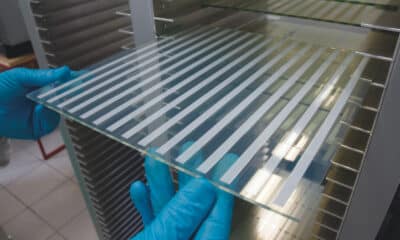
 Andy MacDougall2 months ago
Andy MacDougall2 months ago
 Columns4 weeks ago
Columns4 weeks ago
 Editor's Note3 weeks ago
Editor's Note3 weeks ago
 Marshall Atkinson3 weeks ago
Marshall Atkinson3 weeks ago
 Case Studies4 weeks ago
Case Studies4 weeks ago
 News & Trends2 months ago
News & Trends2 months ago

